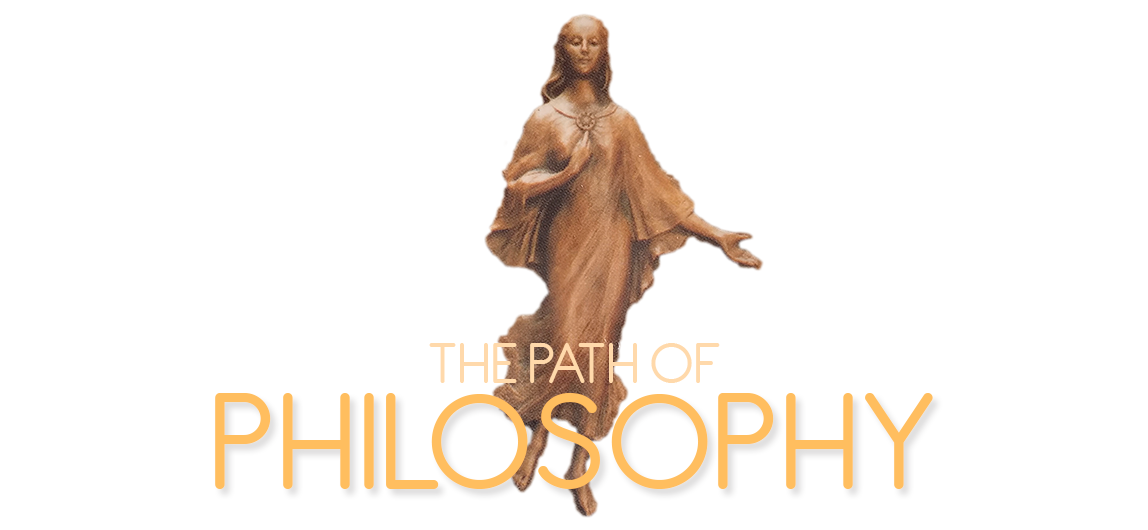Raphael (Ashram Vidya Order). 2003. Aurea Vidya Foundation, Inc. New York, N.Y. (118 pages.) www.vidya-ashramvidyaorder.org
There is a growing interest – or more correctly, a need – in the west to understand the sacred origins of Western Philosophy. This perspective assumes that there once was a sacred western esoteric tradition (which has been lost), and it views ancient Western Philosophy as an expression of this lost wisdom, rather than as a primitive or less developed version of current thought. Among the expositors of this view comes Raphael, a writer, translator of traditional texts, teacher, founder of “Ashram Vidya” and knower, who shares with us in his books a vision of how the Orphic, Parmenidean, and Platonic Traditions represent a sacred legacy of our past, a key to our enlightenment, and a complement to the Eastern traditions that have nourished many of us.
For those of us who have found wisdom in the East it may now be time to also come home and to find in our own traditions a western version of the wisdom teachings that have provided answers to our questions. This effort could lead us to a greater East-West understanding and synthesis, one that reveals the timeless, placeless and eternal Tradition that underlie both – what some in the East have called the “Santana dharma” – and what Raphael simply calls “The Tradition” or “The Doctrine”.
In Orphism and the Initiatory Tradition Raphael explains the importance of Orphism to Platonic and later Western philosophy, gives us an introduction to its doctrines and myths, and reveals to us an ancient initiatory tradition that lies at the heart of Western philosophy and culture, one which can still resonate with us today. How many of us know that doctrines such as reincarnation, the divine origin of the soul, the fact that life is meaningful and ordered, and sacred initiatory rites for reuniting us with our divine nature were known and practiced in ancient times not only in Egypt, South America and the East, but here in the West?
Most are undoubtedly familiar with Plato and his contribution to Western thought. Recently there has been an effort to deconstruct the popular but limited view of Plato as an academic philosopher and to re-represent him as a spiritual initiate and founder of a spiritual tradition – by leading thinkers and philosophers like J.R. Findlay, G. Reale, G. Colli, Peter Kinglsey and Richard Tarnas, as well as by Raphael in his book Initiation into the Philosophy of Plato.
What is less well known is that the spiritual culture that Plato inhabited was one that was deeply influenced by Orphism and Pythagoreanism. Thus, to fully understand Platonism and Neo-Platonism it would be useful to understand the ideas and practices that Plato himself was exposed to in the spiritual currents and teachings of his day. This task has been admirably accomplished by Raphael in this short but deep book on Orpheus and Orphism, the school of wisdom that bears his name.
Readers will also find much useful information on a variety of important topics, among them: the nature and meaning of spiritual symbols, including the myths about Orpheus; the sacred use of music, for which Orpheus was legendary; the theme of realigning degraded traditions with their sacred impulse; the role of the Sage and tradition-founder; and the nature of the One-Truth or “The Tradition” which underlies all sacred doctrines.
In the past five years the Aurea Vidya Foundation has published eleven works of Raphael translated from the original Italian – including translations and original works on Advaita Vedanta and Yoga, and others representing the sacred western traditions, including Initiation into the Philosophy of Plato; Parmenides: On the Order of Nature; and The Threefold Pathway of Fire, (which includes a section on alchemy).
Raphael, along with other contemporary teachers such as Paul Brunton, Anthony Damiani, Rene Guenon, Seyid Hussein Nasr and other “Traditionalist” philosophers, has reminded us that there is a sacred universal wisdom tradition which has roots in the West as well as the East – with Plato, Orpheus, Parmenides, and Pythagoras among its chief representatives, and of an East-West synthesis that is in the making. Along with His Holiness the Dalia Lama, they also remind us that it is possible to reconcile modern scientific understanding with ancient wisdom teachings.
Review by Micha-El (Alan Berkowitz). October, 2009

